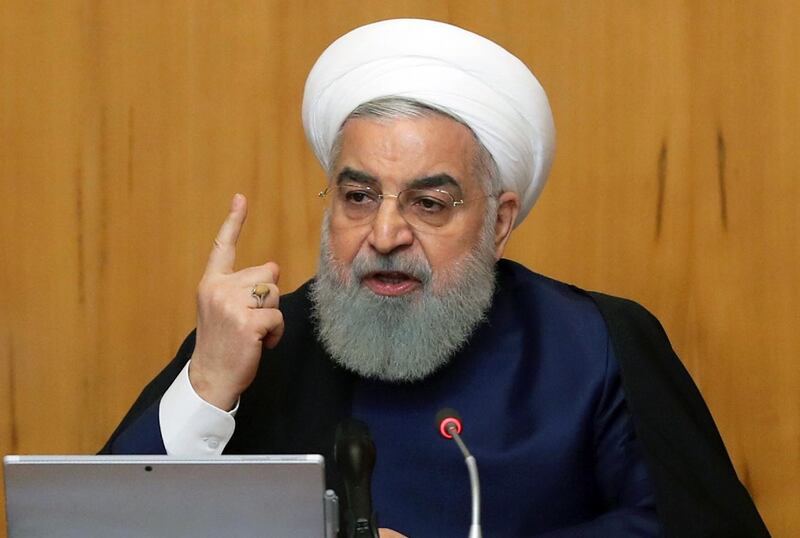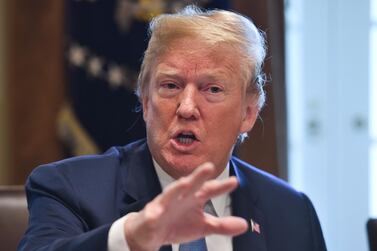Iranian President Hassan Rouhani said he favoured talks and diplomacy with the United States but not under current conditions, Iran's state news agency Irna reported.
The comments come after weeks of increasing tensions with the US, which has been applying pressure on Iran through sanctions since it quit the 2015 nuclear deal just over a year ago.
US officials said on Tuesday it was "quite possible" Iran was responsible for recent sabotage incidents but seemed to be toning down weeks of fiery rhetoric against Iran.
Top Trump officials delivered a classified briefing to Congress, where rival Democrats have accused the administration of hyping intelligence and pushing the United States dangerously close to war.
Secretary of State Mike Pompeo said the United States has not made "a definitive conclusion" that can be presented publicly over sabotage incidents of oil tankers off the UAE or drone strikes on a crude pipeline in Saudi Arabia.
"But given all the regional conflicts that we have seen over the past decade and the shape of these attacks, it seems like it's quite possible that Iran was behind these," Mr Pompeo told conservative radio host Hugh Hewitt before heading to Congress.
"Most importantly, we will continue to take acts that protect American interests and that work to deter Iran from misbehavior in the region, which has the real risk of escalating the situation such that crude oil prices rise," he said.
US President Donald Trump said in a tweet on Monday that "Iran would call when it's ready". The White House reportedly passed a phone number to Tehran via Swiss intermediaries, but they said there has been no contact as yet.
"Today's situation is not suitable for talks and our choice is resistance only," Mr Rouhani said.
"If we walked away from the JCPOA [2015 nuclear deal] after the US provocative acts, then, in addition to the US, the UN and world would also impose sanctions on us," he said.
Mr Rouhani said the main effect of the US sanctions had been a loss of revenue and limited banking access internationally – the vast majority of foreign financial transactions, he pointed out, are handled at some point by US institutions or in US dollars.
US President Donald Trump said earlier on Monday that Iran would be met with "great force" if it attempted anything against US interests in the Middle East. He said Tehran has been very hostile towards Washington.







